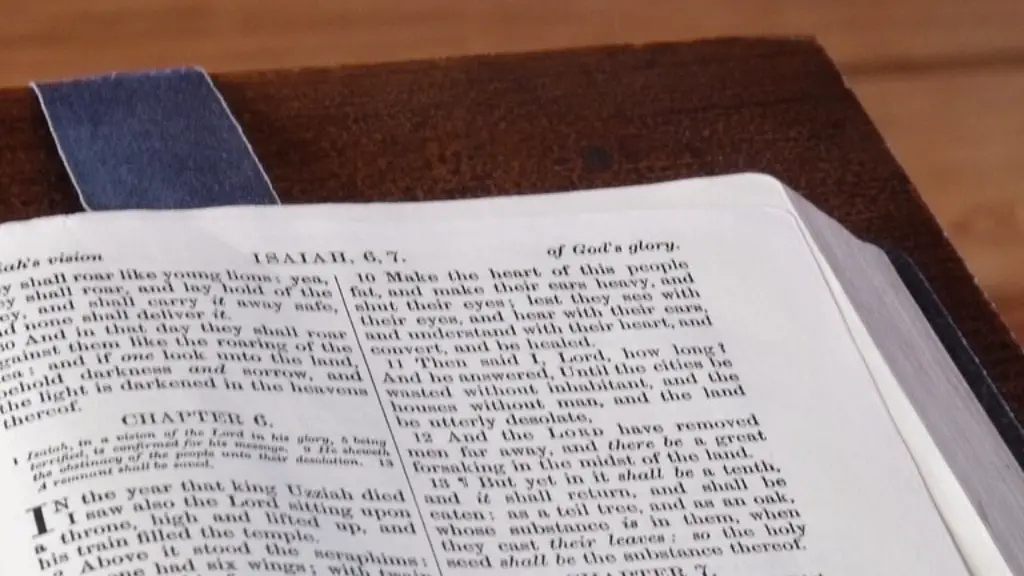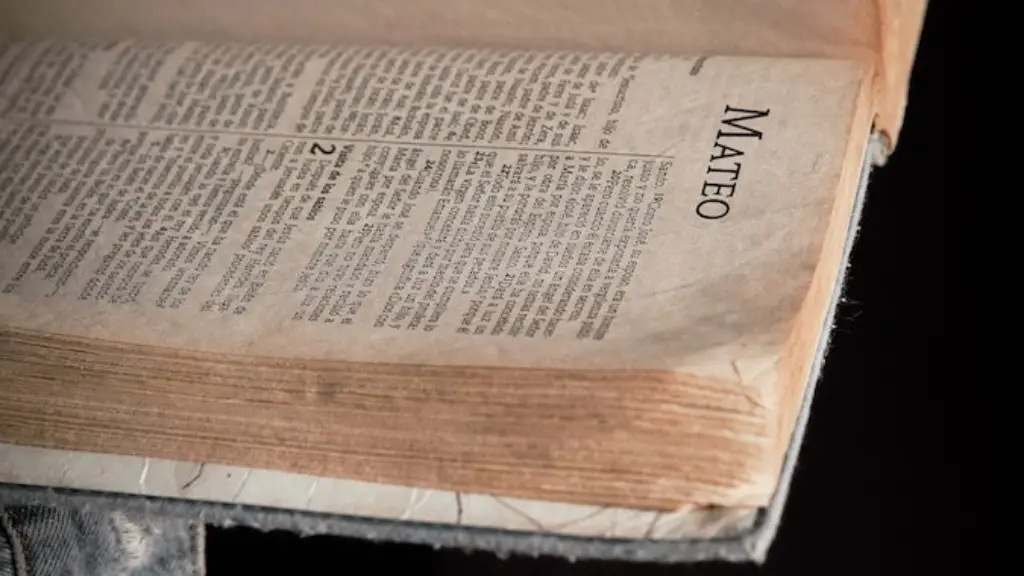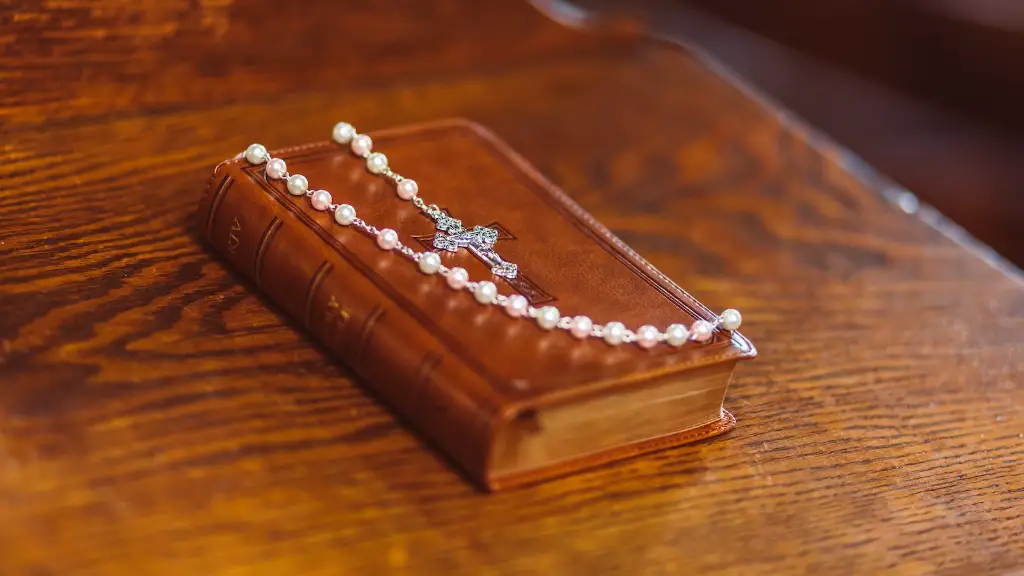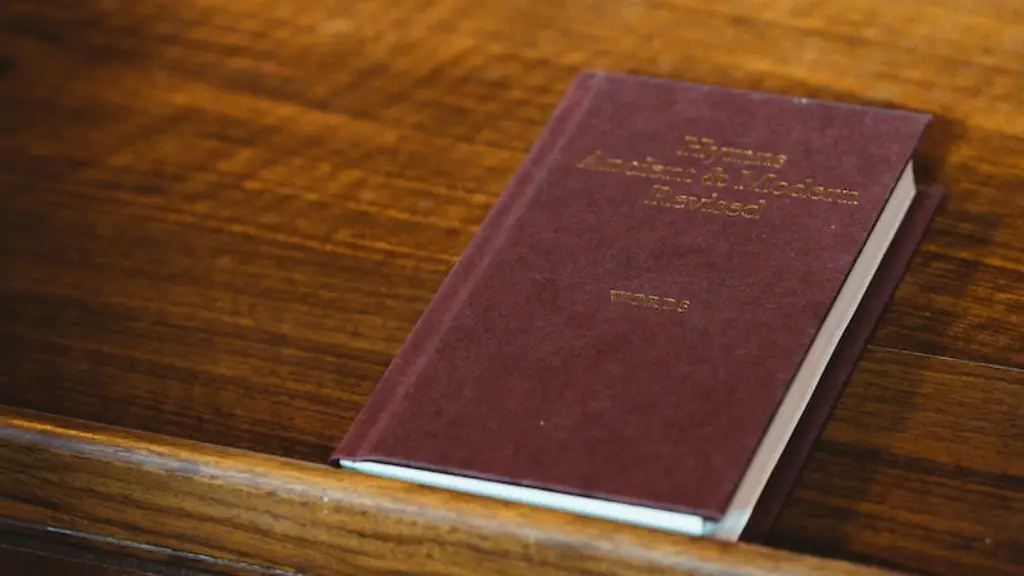The story of Jephthah and his daughter is found in the Bible in the book of Judges. Jephthah was a judge and warrior who led the Israelites in battle against the Ammonites. In return for God’s help in winning the battle, Jephthah made a vow to sacrifice the first thing that came out of his house when he returned home. Unfortunately, the first thing to greet Jephthah was his daughter. Jephthah was a man of his word and, despite his daughter’s pleas, he sacrificed her.
The daughter mentioned in the Bible who was sacrificed was likely a reference to the daughter of Jephthah, a judge who led the Israelites. Jephthah made a vow to God that if he was victorious in battle, he would sacrifice the first thing that walked out of his house when he returned home. Unfortunately, the first thing to greet Jephthah when he returned home was his daughter. While Jephthah was reluctant to follow through on his vow, his daughter convinced him that it was his duty to do so.
Who was the man who killed his daughter in the Bible?
The majority opinion among commentators is that Jephthah killed his daughter as an act of human sacrifice. This is based on the fact that Jephthah made a vow to God that if God would grant him victory in battle, he would sacrifice the first thing that came out of his house when he returned home. When Jephthah returned home, his daughter was the first thing to greet him. Although Jephthah’s daughter begged for her life, Jephthah kept his vow and sacrificed her.
There are a few commentators who argue that Jephthah did not actually kill his daughter, but instead sent her away to live in the mountains for the rest of her life. However, the majority opinion is that Jephthah did kill his daughter as a human sacrifice.
Jephthah was a man of great faith who was willing to sacrifice everything for the Lord. However, we now know that the Lord does not require or desire human sacrifice. Instead, He gave us the ultimate sacrifice of His own Son. This should serve as a reminder to us that we should not attempt to please the Lord with our own sacrifices, but instead focus on living our lives according to His will.
Why did Jephthah make a vow
Jephthah was not sure that he would win against the Ammonites, but he knew that the victory was important for him to raise his dignity as a man who had experienced discrimination from his brothers. Because of that, he considered a vow as the best way (if not the only way) to gain victory.
King Manasseh was a wicked king who sacrificed his sons by fire. This act filled Jerusalem with innocent blood and made the city an evil place.
Who ordered the killing of children in the Bible?
Herod the Great was a king of Judea who lived in the 1st century BC. He is best known for his role in the nativity story of the Gospel of Matthew, in which he orders the execution of all male children who are two years old and under in the vicinity of Bethlehem. This event is known as the Massacre of the Innocents.
The story of Oedipus is a tragic story of a man who was prophesied to kill his father and marry his mother. Oedipus was able to avoid this fate by leaving his home and never returning. However, the prophecy came true in the end, and Oedipus was forced to confront his tragic destiny.
What happened to Jephthah and his daughter?
Jephthah’s daughter is the victim of her father’s vow to sacrifice a person in return for victory in battle. The text does not explicitly state that he killed her, but it is implied.
This story is one of the most bizarre in the Hebrew Bible, and it’s made even stranger by the fact that it’s sandwiched between two other stories about sacrifice. In the first, Abraham is willing to sacrifice his own son at God’s command (Gen 22:1–19). In the second, a man named Isaac is born to a couple who have been unable to have children, and his mother, Sarah, says that he will be a Nazirite, someone who is consecrated to God and will not drink wine or cut his hair (Num 6:1–21).
Jephthah’s story doesn’t fit neatly into this pattern. He makes a vow to sacrifice whoever comes out of his house first if God will give him victory over his enemies. As it turns out, the first person to come out is his only child, a daughter. Jephthah is obviously distraught, but he feels that he must honor his vow.
So he does, and his daughter is sacrificed.
This story is odd for a number of reasons. First, it’s one of the only stories in the Bible where a human is sacrificed (the other is the story of Isaac). Second, it’s the only story where the
What is the faith of Jephthah
Jephthah was a judge or regent of Israel who was known for his faith in Yahweh. He was an example of someone who was committed to Israel’s monotheistic faith.
This is an ancient aggadah, or story, that has been preserved in the Addenda to Mahzor Vitry. It tells the story of Jephthah, a man who made a vow to God that if he was victorious in battle, he would sacrifice the first thing that he saw when he returned home. As it happened, the first thing he saw was his daughter, and he was forced to keep his vow. Every year since, on the day that Jephthah fulfilled his vow, water would turn to blood, and the daughters of Israel would weep for four days over Jephthah’s daughter.
Why was Jephthah rejected by his family?
The treatment of Jephthah by his half-brothers is appalling. They rejected him solely on the basis that their father was not legally married to Jephthah’s mother. Consequently, they told Jephthah that he had no right to inherit their father’s property. This is an incredibly unfair and cruel treatment of Jephthah, and it is a complete injustice.
The man who not only breaks the law by having sex before marriage but also deprives a woman of her virginity has to pay a fine and marry the woman he has dishonored.
Which king in the Bible was killed by his two sons
Manasseh was the oldest of the sons of Hezekiah and his mother Hephzibah. He was born in c 709 BC probably in Jerusalem and he died in c 643 BC, probably in Jerusalem. Manasseh was the king of Judah, succeeding his father Hezekiah. He was a wicked king, who did much evil in the sight of the LORD. In spite of this, the LORD was gracious to him and did not destroy Judah. Instead, the LORD sent the Assyrians to capture Manasseh and take him to Babylon. Manasseh was later released from captivity, and he returned to Judah. He repented of his wickedness and did what was right in the sight of the LORD.
Ehud was a left-handed man who tricked King Eglon of Moab and killed him, thus ending 18 years of Moabite oppression over Israel.
What is the power of sacrifice?
Sacrifice is an important part of success. By sacrificing for your goals, you are temporarily giving up one thing for the long term success of another thing. This can put time in your favor and help you achieve your goals.
The curse of Ham is mentioned in the Book of Genesis as a punishment imposed by the patriarch Noah upon Ham’s son Canaan. According to the story, Noah became drunk and lay naked in his tent, whereupon Ham, Noah’s son, saw his father’s nakedness andtold his brothers about it. Noah cursed Ham’s son Canaan as a result.
Final Words
Jephthah, a judge of Israel, sacrificed his daughter as a burnt offering to God after she was the first thing that greeted him when he returned home from a victory over the Ammonites.
The father in the Bible who sacrificed his daughter did so because he believed that it was what God wanted him to do. He was willing to do anything to please God, even if it meant giving up his own child. This shows us how much faith he had in God and how dedicated he was to His will.





